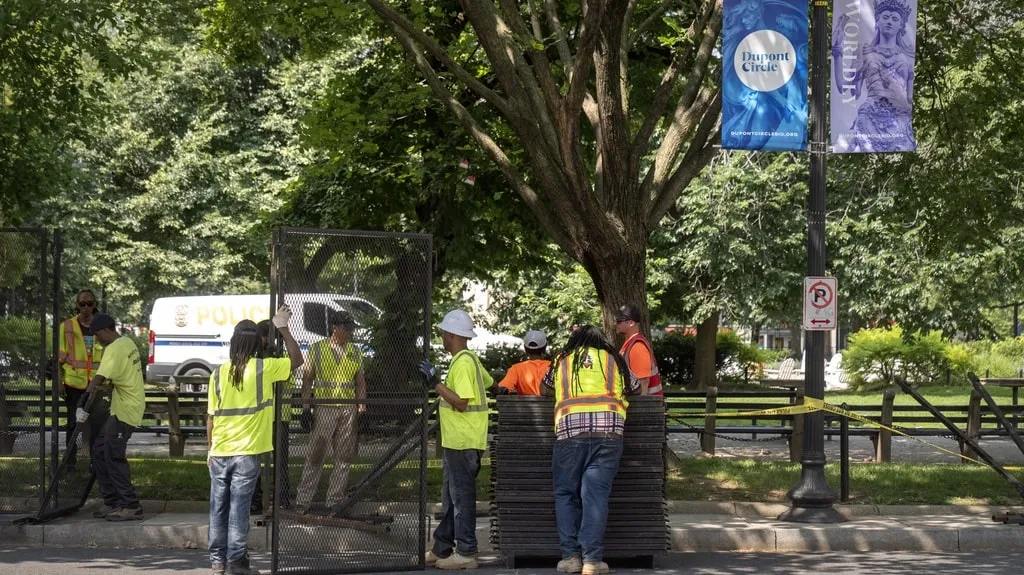September 27, 2013
AVAC Evaluates Range of Vaccine Trials Across the World
Winnie McCroy READ TIME: 4 MIN.
Although we have yet to discover a vaccine to prevent HIV infection or lower viral load, there are currently 30 candidates moving forward in clinical trials across the world. AVAC: Global Advocacy for HIV Prevention's Executive Director Mitchell Warren spoke to EDGE about current human clinical trials in Thailand and South Africa that show promise.
"After decades of vaccine research and lots of ups and downs and disappointing results, the results of Thailand's RV144 study, which is four years old now, were the first in a human clinical trial that showed that a vaccine reduced the risk of HIV," said Warren. "It was 31 percent effective. The trial showed that it could work, but not good enough to get it to market and license it."
Further analysis of the study in 2012 and early 2013 provided additional insight into the vaccine's effectiveness. Researchers from the MHRP, the National Institute of Allergy and Infectious Diseases (NIAID) of the National Institutes of Health (NIH), Duke University and the Thai Ministry of Public Health collaborated with 25 other institutions to discover that different types of antibody responses were associated with a higher or lower rate of HIV infection.
Further research confirmed these results and provided insights into variables that may have influenced the efficacy seen in RV144. These findings have sparked new research, including a trial to see if the results can be repeated and improved in a high-incidence setting, an adaptive design trial looking at multiple vaccine candidates and an efficacy trial using the same regimen as in RV144 in an MSM population in Thailand.
"A number of experiments were done with samples to see why it worked, and last year, using samples from the trial, researchers began to look at what we call 'correlates of risk,'" said Warren. "Because we need to do better than 31 percent, it's important to understand why it's working and tweak it."
The vaccine has been modified, and a series of trials are now being planned using what scientists hope is a slightly better combination to get us to a level that could result in a licensed vaccine.
Multiple Vaccine Trials Keep Looking for the Answer
"It speaks to the challenge of the scientific process that at the same time, a lot of other vaccine candidates are being developed," said Warren. "It's not clear which will work; some are further behind the Thailand trial, and look at slightly different ways to help the immune system fight off HIV."
Warren said that current trials include the first trial in Thailand run by the U.S. Military HIV Research Program in partnership with the Thai government. There is a partnership between the U.S. military and the NIH that funds biomedical research. There is also collaboration with the Bill & Melinda Gates Foundation and Novartis, and other vaccine developers are also trying to develop a boost to make the vaccine work better. Researchers are designing a suite of studies, but some barriers remain, namely variations among strains of HIV and challenges finding funding.
There are variations among the HIV virus in different parts of the world; for example, the one that circulates in Thailand is a different subtype than the one prevalent in South Africa. So the study in South Africa is working to tweak the Thailand vaccine against that subtype.
Funding continues to be an issue in these vaccine trials. In 2012, investments in global preventive HIV vaccine R&D were virtually flat, increasing by just US$2 million over the previous year to total US$847 million.
Funding has gradually declined since 2007, but researchers have attempted to increase efficiency by forming collaborations to share knowledge among different institutions. Large investors like the NIH, the International AIDS Vaccine Initiative (IAVI) through USAID, the Bill & Melinda Gates Foundation and private pharmaceutical and biotechnology companies are enabling the discovery and further study of broadly neutralizing antibodies that block the HIV virus' ability to infect cells.
But setbacks are inevitable. A promising study of the HVTN505 vaccine trial was halted this April when the vaccine used in the trial was not effective. The trial, funded by the US NIH, was estimated to cost between $75-80M.
"It is slow moving and very frustrating; that's the nature of vaccine study. That's where a lot of the energy is going now," said Warren. "We had an exciting clue four years ago. It is a path forward, but it's taking longer than we'd like. But before 2009, we didn't even know what the road looked like."
For more information, visit www.avac.org/?
Winnie McCroy is the Women on the EDGE Editor, HIV/Health Editor, and Assistant Entertainment Editor for EDGE Media Network, handling all women's news, HIV health stories and theater reviews throughout the U.S. She has contributed to other publications, including The Village Voice, Gay City News, Chelsea Now and The Advocate, and lives in Brooklyn, New York.



